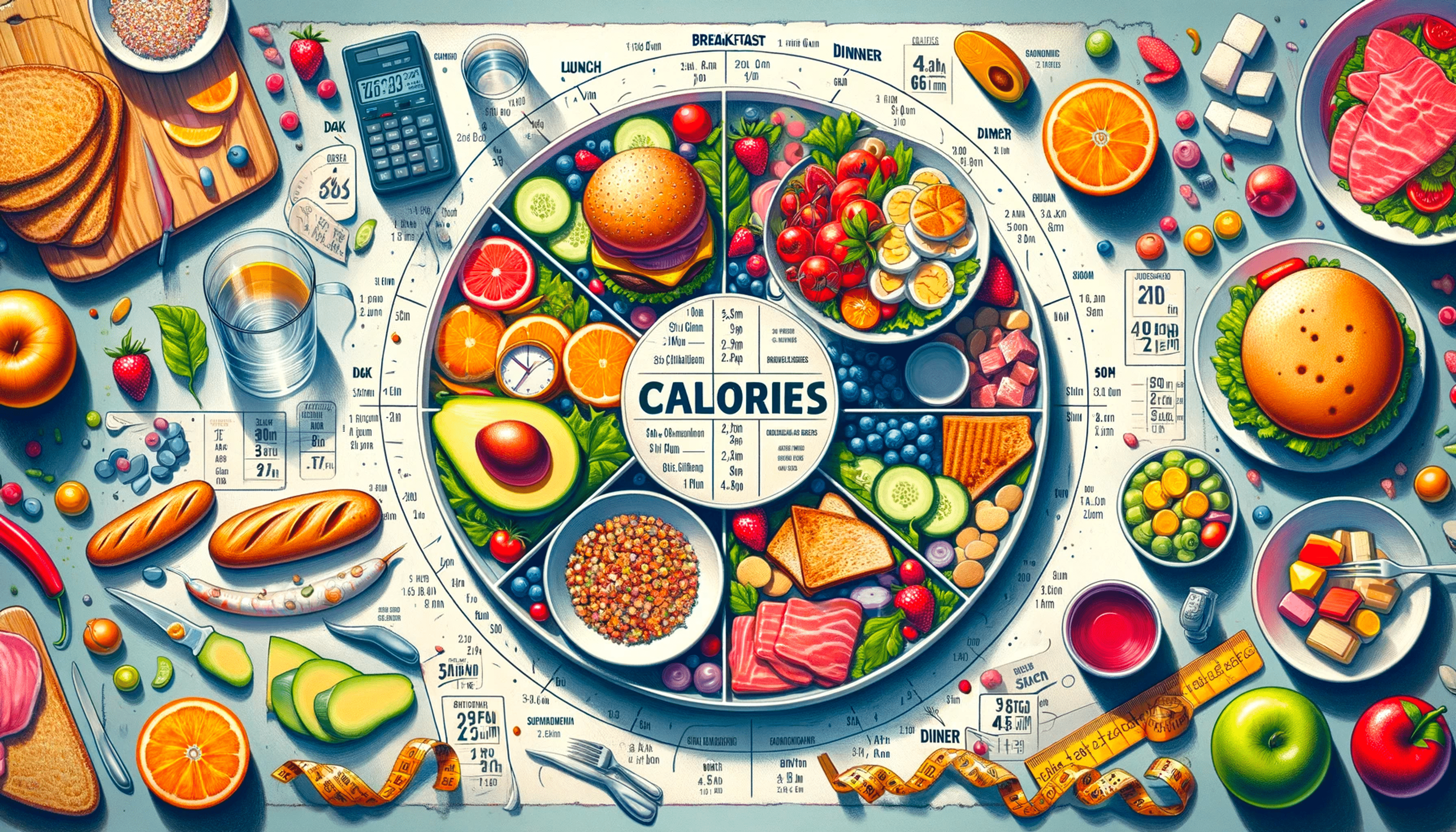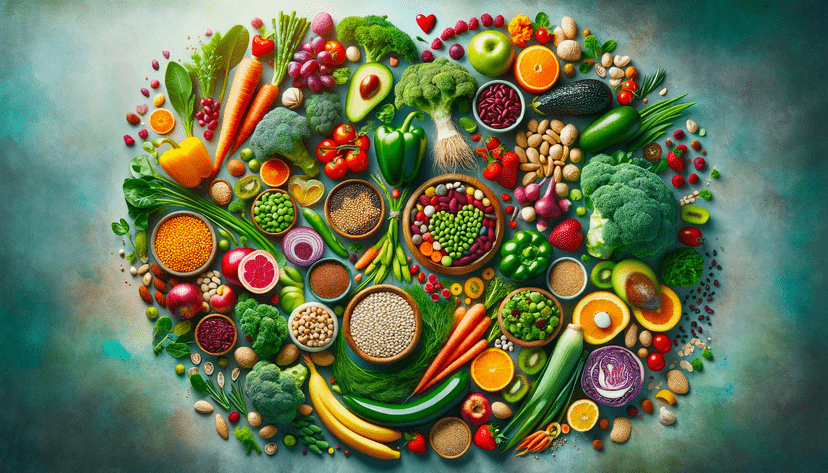Is Calorie Counting the Only Sure Way to Lose Weight?

Debunking the Myth of Calorie Counting
Let's start by deconstructing the prevalent belief in the health and fitness community that calorie counting is the only sure way to weight loss. The idea thrives on the principle of energy balance, stating that if you burn more calories than we consume, you will lose weight. However, albeit logical, the foundation behind this perspective comes into question as it fails to address facets of health beyond just weight management. Encouraging a more holistic approach to weight loss, we need to shed light on important factors such as nutrient density, hormonal effects, and lifestyle habits, that play a significant, if not, a more crucial role in sustainable weight loss.
So, why move beyond calorie counting? Because our body isn't just a simple mathematical equation but a complex system with countless processes happening at any given moment.
The Limitations of Calorie Counting
While calorie counting lends us a preliminary understanding of our food consumption, it ultimately gives a one-dimensional view of the diet and takes away the focus from the nutritional content. None of the two foods with equal calories are created equal. For instance, a soda can and an equivalent calorific amount of lean protein will set off completely different biological processes in your body.
Nutrient Density vs. Calorie Content
This is where the concept of nutrient density becomes important. Nutrient-dense foods are those that provide substantial amounts of vitamins, minerals, and other nutrients with relatively few calories. Foods such as fruits, vegetables, lean proteins, and whole grains are high in nutrient density and foster long-term health, whereas low nutrient-dense foods such as fast foods, sweets, and processed foods are often high in calories but low in essential nutrients, leading to weight gain and poor health. Therefore, instead of just restricting calories, shifting focus to the intake of nutrient-dense foods brings along positive changes in weight management and the overall health.
The Role of Hormones and Metabolism
One of the key components in the weight loss equation often skipped over is the role of our hormones. Hormones like insulin, ghrelin, leptin, and cortisol play pivotal roles in our body's metabolism and appetite regulation. Different foods stimulate different hormonal responses that can either lead to weight gain, weight loss, or weight maintenance. An example of this is refined sugars or simple carbohydrates that spike insulin levels and promote fat storage. Therefore, the biological response to a calorie goes much beyond just energy intake.
Emphasizing a holistic approach to weight management, it is essential to understand that weight loss is not as simple as 'calories in' vs. 'calories out'. Optimal nutrition and weight loss management are about more than just calories, but revolve around consuming nutrient-dense foods and understanding our body's unique hormonal and metabolic responses. Thereby cultivating healthy lifestyle habits in the process. It is in this synergy we can find sustainable, long-term, and most importantly, healthy weight loss. Understanding these crucial aspects of diet and nutrition can demystify the complex process of weight loss and pave the way for a balanced and sustainable approach.
Alternative Strategies for Weight Loss
The focus of weight loss often gets narrowed down to one aspect, calorie counting. Undeniably, maintaining a calorie deficit is crucial for weight loss, however, other strategies can play a significant role in successful weight management. In this section, we will explore the importance of eating whole, unprocessed foods, incorporating physical activity, managing stress, and ensuring quality sleep. It's a call to widen our perspective on achieving our weight loss goals, without solely relying on counting calories.
Eating Whole, Unprocessed Foods
One can lose weight without having to count every single calorie consumed. A key strategy that works wonders is focusing on eating whole, unprocessed foods. These foods include whole grains, lean proteins, fruits and vegetables, nuts, and seeds. These foods are naturally lower in calories compared to processed foods and are packed with essential nutrients that foster overall health.
Whole foods have fewer sugars, unhealthy fats, and additives which can lead to weight gain. Moreover, they are rich in fiber, a nutrient that can help to control appetite by making you feel fuller for longer and can reduce calorie absorption from other foods. Recent research showed that those who ate diets high in fiber had almost a 20% greater chance of achieving a healthy weight.
Incorporating Regular Physical Activity
In addition to diet, regular physical activity is a crucial part of a healthy lifestyle that can help you control your weight. The American Heart Association recommends at least 150 minutes of moderate-intensity aerobic activity or 75 minutes of vigorous aerobic activity per week.
Exercise helps in burning calories, building muscles, and boosting metabolism, which collectively contribute to weight loss. Importantly, regular exercise also provides numerous other health benefits, including improving heart health and mental well-being, and reducing the risk for chronic diseases.
Addressing Stress And Sleep For Weight Management
It is also important to pay attention to stress management and quality sleep. Elevated stress levels can trigger emotional eating or overeating, which can affect your weight loss efforts. Thus, incorporating stress management tools, such as meditation, yoga, and deep-breathing exercises, can be of significant help when it comes to controlling weight.
Similarly, sleep plays a critical role in weight management. Lack of quality sleep can affect hormones that control appetite and can lead to weight gain. According to a study published in the American Journal of Clinical Nutrition, people who were sleep-deprived ate over 300 extra calories per day.
To sum up, while calorie counting can be handy, it should not be the sole strategy used for weight loss. Combining it with other approaches like focusing on whole foods, regular physical activity, managing stress, and ensuring quality sleep can make your weight loss journey more sustainable and healthier.
Creating a Personalized Weight Loss Plan
In the pursuit of healthy and sustainable weight loss, one must recognize that there is no 'one-size-fits-all' method. A key strategy that often propels people towards their weight loss goals is learning how to personalize and individualize a weight loss plan. The emphasis here is on creating a balanced and effective weight loss plan that fits your unique lifestyle, preferences, and health needs.
Assessing Personal Needs and Goals
Before embarking on any weight loss journey, it is imperative to take some time to understand and evaluate your personal needs and what you ultimately want to achieve. Your weight loss plan must be realistically aligned with your lifestyle, food preferences, physical activity levels, and overall health goals. For example, a busy working professional might need a weight loss plan that does not require spending long hours preparing meals. Similarly, someone with specific dietary requirements due to health conditions will need a plan that takes these needs into account.
This initial step is crucial as it lays the foundation for sustainable weight loss and helps mitigate the risk of selecting a weight loss strategy that you can't adhere to in the long run.
Combining Calorie Awareness with Holistic Strategies
For many, weight loss has become synonymous with calorie counting. Although having an understanding of caloric intake can play an important part in the weight loss process, it should not be seen as the only tool in your arsenal.
Consistency in a healthy lifestyle involves a more holistic approach. This means combining the awareness of calorie intake with other strategies, such as regular physical activity, adequate sleep, and stress management. Such a diversified approach can aid in not just weight loss but also in improving overall health.
Moreover, getting too engrossed in calorie counting can potentially fuel unhealthy eating behaviors and create a negative relationship with food. This is why, striking a balance between calorie awareness and other facets of a healthy lifestyle is of utmost importance to ensure a positive and holistic weight loss journey.
Monitoring Progress and Making Adjustments
As you embark on this road to weight loss, another critical aspect is regular progress monitoring to check whether your personalised plan is working for you or not. This involves keeping track of your weight changes, energy levels, mood patterns, sleep quality, and other related factors.
Remember, progress does not always mean just numbers on the scale; pay attention to your body in terms of stamina, strength, flexibility, and mental wellbeing. It's also normal for your body to plateau on your weight loss journey, and undergoing such phases does not mean failure.
Staying attuned with your progress can enable you to make necessary tweaks and adjustments in your plan, thus ensuring that it remains fine-tuned to your needs. Accept that results will not come overnight, and patience and consistency are crucial for long-term success.
In conclusion, personalizing your weight loss plan by factoring in your unique needs, combining calorie awareness with a holistic lifestyle approach, and diligently monitoring and adjusting your strategies do not only boost weight loss but also contribute to a sustainable and healthy lifestyle.
In Summary
This blog post aimed to debunk the prevalent myth about calorie counting being the sole way to weight loss. It advocates for a more holistic approach to weight loss that does not solely rely on calorie restriction. The post highlighted the limitations of calorie counting and put forward the importance of nutrient-dense foods. It mentions the role our hormones play in weight regulation, a crucial aspect often overlooked in traditional weight loss beliefs.
Furthermore, this post explored alternative strategies for weight loss that goes beyond counting calories. Emphasis is given to eating whole, unprocessed foods, incorporating regular physical activity, managing stress, and ensuring quality sleep.
Lastly, the blog presents the importance of creating a personalized weight loss plan. It explained the need to assess personal needs and goals, combine calorie awareness with holistic strategies and the necessity to monitor progress and make adjustments along the way. A well-rounded, individualised weight management plan leads to a more sustainable and effective weight loss.
Here are your takeaways and steps you can start implementing right now:
-
Step 1: Shift your focus from calorie counting to a holistic approach for weight management. Look at the nutritional content of your food and aim for nutrient-dense foods.
-
Step 2: Pay attention to your hormonal responses to the food you eat. Each body is unique and responds differently to different types of food.
-
Step 3: Incorporate whole, unprocessed foods into your diet. They are naturally low in calories and pack a nutritional punch.
-
Step 4: Incorporate regular exercise into your routine. Find activities you love, so it doesn't feel like a chore.
-
Step 5: Be mindful of your stress and sleep. Practice stress management techniques and strive for quality sleep every night.
-
Step 6: Create a personalized weight loss plan that fits
your lifestyle, preferences, and health needs.
- Step 7: Monitor your progress and make adjustments as necessary. Remember, weight loss is a journey, not a sprint.
By incorporating these steps, you can work towards a more sustainable approach to weight loss. An approach that is not only about reducing the numbers on the scale, but also about enhancing your overall well-being. The key to sustainable weight loss is understanding and respecting your body's needs, integrating a balanced diet, staying physically active, and nurturing your body through appropriate rest and stress management.





